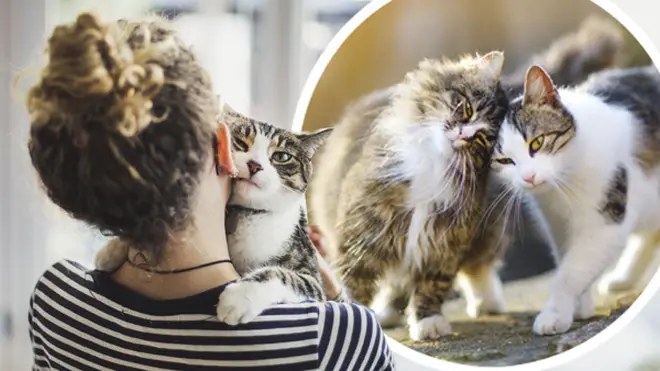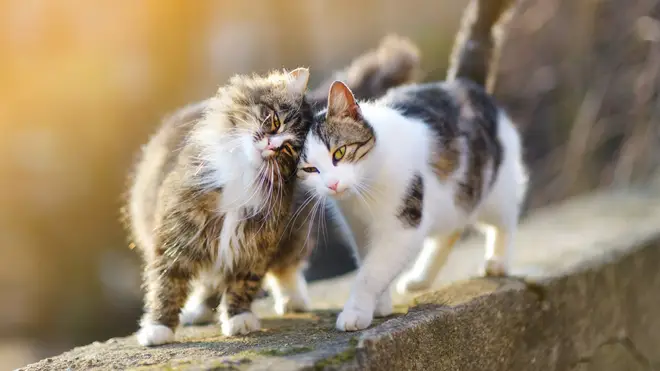Scientists warn cats can spread coronavirus and should self-isolate with owners
1 October 2020, 10:33

New research suggests they cats can spread COVID-19 to other pets through their noses and mouths.
Cats can spread coronavirus to other pets, scientists have warned.
Researchers are now warning cat-owners that if someone in their household becomes infected with COVID-19, their furry pet should isolate with them.
They say that cats are "highly susceptible to infection" and can infect other cats through their noses and mouths.
The study, carried out at Colorado State University, said that cats should not be allowed to roam outside during this time as there is a risk they could spread the virus to other outdoor cats or wildlife.
READ MORE: African grey parrots removed from zoo display for swearing at visitors

If a cat owner has to go to hospital because of COVID-19, scientists have said whoever is taking care of the cat should socially distance, like they would from a person.
The researchers at Colorado State University said: "Infected pet cats should not be allowed to roam freely outdoors to prevent potential risk of spreading infection to other outdoor cats or wildlife.
"While neither species developed clinical disease in this study, cats shed infectious virus for up to five days and infected naive cats via direct contact, while dogs do not appear to shed virus.
"Thus if symptomatic humans follow appropriate quarantine procedures and stay home with their pets, there is minimal risk of a potentially exposed cat infecting another human."

The researchers tested seven cats and three dog who were injected with the virus, and found that neither of them became ill.
There is still no evidence to suggest cats or dogs can give the virus to humans.
They also found that cats immune systems meant that they could not be reinfected with the virus, explaining: "Resistance to reinfection holds promise that a vaccine strategy may protect cats and, by extension, humans.
"Importantly, infected cats shed for no more than five days following exposure, suggesting that cats, if exposed to infected humans, will develop and clear infection rapidly."
The study found that while dogs can get COVID-19, they are not at risk of infecting others.
READ NOW: Internet left divided over optical illusion – but do you see a dog or a clown?























